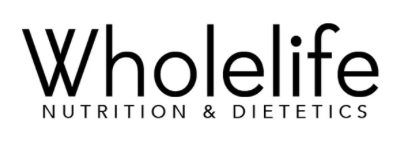WHAT YOU NEED TO KNOW BEFORE TAKING A PROBIOTIC
What are probiotics?
Probiotics are the happy bugs that live in our gut, mainly in our large intestine.
By definition they’re
'live microorganisms which when administered in adequate amounts confer a health benefit on the host" (1).
Now in English, we have to eat enough of that particular live microbe & the happy bugs you’re eating, must’ve been scientifically proven to be beneficial for our health to be classified as a probiotic. Essentially, it’s like taking medications, you need to take the right one in the right dosage for the heath problem you’re trying to fix.
What do they do?
There is a huge gap between what we do and don't know.
What we do know is probiotics have 2 main functions in our gut, support a healthy immune and digestive system (1). They improve our health by helping breakdown foods we may not be able to on our own (eg. lactose-the sugars found in milk), they produce and help absorb vitamins, hormones and short chain fatty acids (SCFA), improve the diversity of bacteria and, communicate with host cells through chemical signalling (2, 3).
This all leads to reduced inflammation (important for digestion & for balancing hormones!), a healthier environment in our large intestine and stronger immune system. Particular effects on the body may be strain or species specific, scientists are still working on this, so watch this space!
It is also important to note, we don't know if probiotics we eat survive the journey to AND colonise our large intestine. Like I have said, there is so much we don't know, but it is an exciting area that we are constantly learning about. There are promising benefits which extend beyond the gut to heart, kidney, brain and vaginal health (3)!
Where can I get them?
Probiotics can be found naturally in foods or in a commercial supplement form. Most people automatically think of fermented foods as probiotics but this is not true. Food processing techniques such as baking a loaf of sourdough can destroy the microbes therefore, not meeting the definition of 'live microorganisms'.
Additionally, some fermented foods contain live microbes but don't meet the official definition of probiotics because there isn't clinical human studies providing a health benefit. This doesn't mean they aren't good for you, just means they may not have had enough research into it yet.
Do I need to take a supplement each day?
No. There are a few situations where taking a probiotic supplement has been proven to be beneficial. Taking one ‘just because’ or ‘just incase’ isn’t necessary. I’d much prefer you to nurture the ones you already have there.
If you are travelling and get travellers diarrhoea, you have just completed a course of antibiotics or have a poor diet (1). They may be helpful in the treatment and management of IBS, inflammatory bowel disease, allergies, constipation, diarrhoea, h.pylori infections, colic, lactose malabsorption, non-alcoholic fatty liver disease and more (1, 3).
My friend, your unique, our gut microbiome is like our own fingerprint, no one has the same as you -crazy right?!
As always, it's better to eat nutrients from food than supplement to get the benefits of other nutrients (e.g. calcium in fermented dairy, vitamin C in sauerkraut).
What should I be looking for?
If you want to take a supplement, you’ll need to make sure you’re taking the correct strain and dosage of microbes for what you want to achieve. Supplements are not as tightly regulated as medications, so the quality of probiotics may not match the incredible health claims promised on the packaging, plus they can be expensive! If you’re already healthy and eat a diet high in fermentable fibre (soluble and resistant starch), wholegrain, fermentable foods, fruits and vegetables, probiotic supplements are probably a waste of your hard earn money which you can use for something else.
Quick tips on what to look for
1. Check the Colony Forming Units (CFUs) is stated at the end of shelf life, not time of manufacturing as they can die over the shelf life of the product. The dose is generally strain specific, but as a guide, look for 1-10 billion CFU per serve or dose (dependent on how you consume it) (3).
2. Choose foods which state specific genus, species and preferably strains of Lactobacillus, Bifidobacterium or Saccharomyces (3). These are the main three which have been studied which we KNOW are beneficial for our health...'vegan cultures' isn't being transparent with consumers and a big hint it may not be beneficial of your health & it’s big industry marketing. Put that one back!
3. Don't choose a food just because it 'contains live bacteria' look at what else the food includes, and do your own research....chips which contain probiotics…really?
4. Microbes are sensitive little critters, choose refrigerated products or products that protect them from the harsh environment of our digestive system. Storage instructions should be stated on the packaging (3).
Important reminder
Think of probiotics as plants in a garden, and prebiotics as the sunlight and water to help them grow and flourish. So make sure you are feed your microbes (probiotics) fermentable fibres (prebiotics) to ensure they thrive, so you thrive! If you’re not eating the right foods, you’re probiotics are going to be useless.
If you found this helpful or know someone who would, please forward or share. Education and knowledge is key!
This is a really tricky area, however if you think you need to take a probiotic, speak to your GP or digestive dietitian. As always, I am happy to help and have a chat, or can point you in the direction of someone else who can.
Kindest,
Sarah
References
(1) https://www.nature.com/articles/nrgastro.2014.66?foxtrotcallback=true
(2) https://4cau4jsaler1zglkq3wnmje1-wpengine.netdna-ssl.com/wp-content/uploads/2016/08/Probiotics_0119.png
(3) http://www.worldgastroenterology.org/guidelines/global-guidelines/probiotics-and-prebiotics/probiotics-and-prebiotics-english


